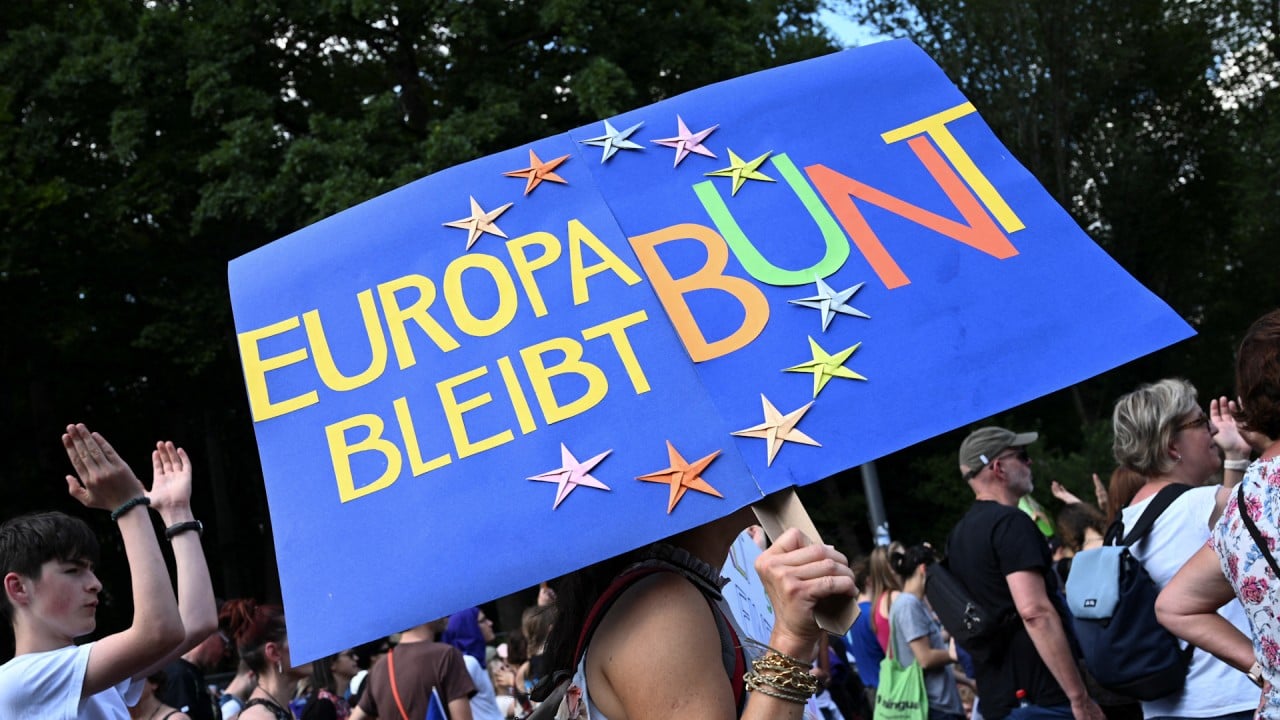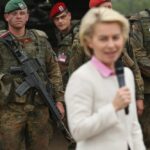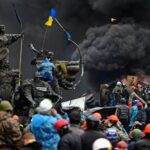Summary by Geopolist | Istanbul Center for Geopolitics:
Kaja Kallas, the Prime Minister of Estonia and a candidate for the position of the EU’s next head of foreign policy, is expected to take a tougher stance towards China. This reflects her strong position against authoritarian regimes, particularly when it comes to Russia.
Although she has been historically cautious in dealing with China and preferred a more reserved approach compared to Lithuania’s more outspoken stance, her future role might push her to take a more assertive position. Kallas’s potential policies could focus on countering China’s support for Russia in the context of the ongoing conflict in Ukraine.
Her relationship with Ursula von der Leyen, the President of the European Commission, who has had a controversial tenure with the outgoing foreign affairs chief, Josep Borrell, may also influence her approach. Kallas will need to maintain a balance between her role at the European Commission and the European Council while addressing any perceived gaps in her strategic thinking about China.
To succeed, she will need to build a strong team of experts on East Asian affairs and effectively navigate the complex dynamics within the EU.
Read more below.
Why EU’s next foreign policy chief Kaja Kallas could be tougher on China
Kaja Kallas presided over both decisions as Estonia’s prime minister, though neither was her brainchild, having been proposed by the foreign ministry.
Most expect Kallas to pursue an aggressively anti-Russian platform aView Posts the high representative for foreign affairs and security policy/vice-president of the European Commission (HRVP), the title granted to the EU’s top diplomat.
The three Baltic countries – Estonia, Latvia and Lithuania – see themselves at existential risk of Russian aggression. Kallas and her counterparts have unsurprisingly become among the staunchest backers of Ukraine and sternest critics of Russia.
On China, the outlook is less clear. While Kallas has frequently pitched herself in the “democrats versus autocrats” camp, she has taken a cautious approach in unpicking some of Estonia’s ties with the world’s second-largest economy.
Her record in office suggests that she was not inherently hawkish towards Beijing, even if she was happy to be guided by others who were.
Compared to Lithuania, which publicly courted Taiwan and loudly broadcast its decisions to exit Beijing’s flagship trade and economic groupings, Kallas’ Estonia preferred to do things quietly.
Kallas is seen to be “reasonably moderate” on China, but has not devoted a great deal of strategic thought to the country, according to people familiar with her governance.
Late last year it was reported that Taipei would set up a representative office in Tallinn. This earned a pre-emptive rebuke from Beijing, and a threat that the mainland Chinese envoy in Estonia would be withdrawn if the move went ahead.
However, Taiwan has yet to submit a formal application, having been told that it would be impossible to open an office with the same name as its branch in Vilnius, according to three people familiar with the issue.
In Estonia, Lithuania was not seen to have operated astutely on the issue, even if some of Tallinn’s ministries viewed Beijing with similar levels of suspicion.
Estonia abstained during a recent vote on whether to back the European Commission’s provisional duties on Chinese-made electric vehicles, and has in general favoured free-market policies over geopolitical manoeuvrings.
The exception is on issues pertaining to Russia. Because of this, a consensus is emerging in Brussels that Kallas will be tougher on China, largely due to Beijing’s ties with Moscow.
“Beijing believes her tough stance on Russia will make solutions even more difficult. Kallas is expected to double down on curtailing China’s support to Russia’s war efforts.”
Kallas is also known to be close to von der Leyen, who had a difficult relationship with Borrell.
In a recent documentary titled Inside European Diplomacy, Borrell teased Chinese think tankers about the EU’s health and education systems being “more collectivist than yours”.
On “issues of socioeconomic rights, we are more advanced than you … we are more communist than you!”, Borrell told academics at Shanghai International Studies University.
It is difficult to imagine Kallas in the same situation. Despite having a father whose political career straddled official roles during the Soviet and post-Soviet era, the Estonian has positioned herself as a virulent opponent of communism.
In Brussels, her role will be partly to bridge the chasm between the European Commission and the European Council, of which Kallas was recently a member.
People close to Borrell complain that von der Leyen’s main failing during her first term was isolating both the council and the External Action Service helmed by Borrell, a dynamic that helped put the brakes on key elements of the de-risking strategy from China.
“There needs to be a way to bridge the gap, and unless von der Leyen learns to communicate better with Kallas and council, things will not change,” said one senior source.
During von der Leyen’s speech to the European Parliament on the day she secured her re-election, the word “security” appeared 10 times, while there was no mention of “trade” or “development”.
The message is clear: the commission is pushing further into the space that Kallas and incoming council boss Antonio Costa occupy on foreign affairs, arguably reducing the margin for the Estonian to put her mark on China policy.
To address her “potential blind spot” on the topic, Kallas must “assemble a strong team of advisers and experts on East Asian affairs”, wrote Brian Iselin in a recent paper for the Institute for Security and Development Policy.
“This team could include seasoned diplomats, regional specialists, and political and economic analysts who can provide in-depth insights into the nuances of engaging with China and other key players in the region,” Iselin wrote.
Kallas will have to simultaneously report to von der Leyen and serve the interests of member states – a needle some predecessors have found impossible to thread.
“It’s a very difficult job because you have to be a civil servant and a political leader at the same time,” said Romana Vlahutin, a former senior EU diplomat who served under three HRVPs.
“But dynamics in Brussels are such that if you have a good idea, if you can read the room, if you are smart and if you are persistent, you can put your stuff on everybody’s desk, and you can do things – because everyone is super busy and people appreciate well-argued proposals,” said Vlahutin, currently a distinguished fellow for geostrategy at the German Marshall Fund.
“So if you come with a solution, and if you do your preparations well, especially with capitals, you can really lead on issues.”
By: Finbarr Berminghami
Source: South China Morning Post








